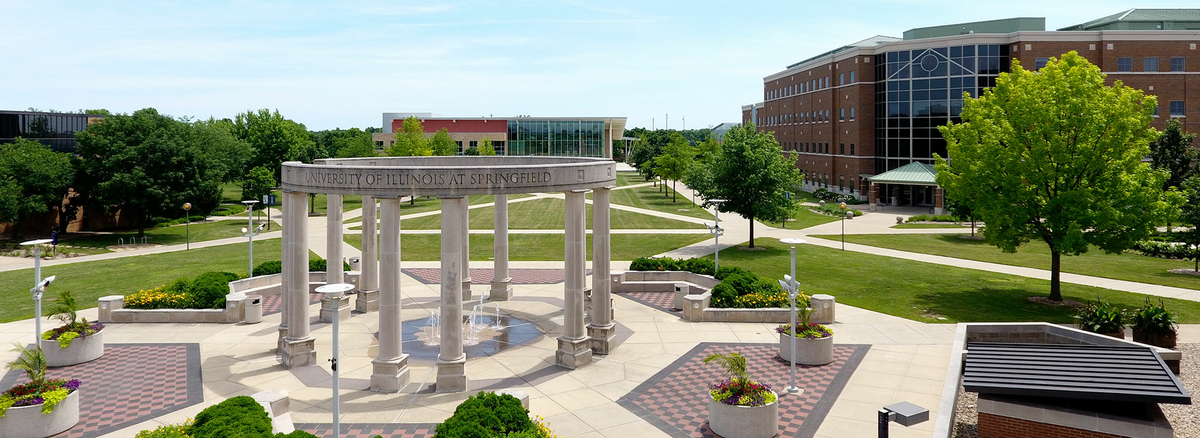Congratulations to Chris Denq! His paper, "Hempel and the Raven Paradox," has been accepted by Ephemeris, an undergraduate Philosophy journal published by the Union College! It will appear in the 2024 edition of the journal. Chris's paper is among the three that were accepted from a total of 35 submissions.
Chris is one of our online Math majors. Before coming to UIS, he received a bachelor's degree in art history and philosophy from the University of Pennsylvania. He worked as an art curator at prestigious institutions such as Christie's, a world-leading art and luxury business, and the Philadelphia Museum of Art.
Around 2020, Chris sought to transition from the art market into AI and data. He already has several years of research experience in multiple areas, including data science, AI Governance, and AI-informed mathematical modeling. Here are some highlights:
- Chris is currently doing data science work for the US Department of Defense, specifically at the NSWC Crane (Navy Research Lab)—where he is developing an NLP platform to inform the lab's research direction, budget, and policy.
- He is an AI governance researcher currently staffed to Dr. Koen Holtman, the Dutch representative on the CEN-CENELEC JTC21, which is a committee responsible for drafting technical standards for the European Parliament's AI Act.
- In addition to these remarkable experiences, Chris is working with our very own Dr. Liang Kong on research regarding Physics-Informed Neural Network (PINN), a machine learning approach that utilizes neural networks to solve problems involving physics-based equations.
This year, Chris presented his joint work with Dr. Kong on PINN titled "A Meshfree Deep Learning Approach for Numerical Solution of Differential Equations" at several occasions:
- The UIS Student Technology, Arts, & Research Symposium (STARS), April 2024
- The Chicago Area Undergraduate Research Symposium (CAURS 24), April 2024; presenters are chosen through a highly selective process
- The Mathematical Association of America, Illinois Section (ISMAA), March 2024; Chris won the Best Undergraduate Paper Award and the Best Undergraduate Presentation Award.
Additionally, Chris spoke at our Math Colloquium in May earlier this year. The title of his talk was "An Introduction to Mathematical Modeling and PINNs."
Chris' journey is fascinating, spanning art, philosophy, data science, AI, AI governance, mathematical modeling! This is why we invited him to share his thoughts and reflections on his adventure thus far.
Are you interested in exploring learning opportunities at UIS? Feel free to contact me at hchan1@uis.edu.
(Dr. Hei-Chi Chan, MAT/PHI, hchan1@uis.edu, October 6, 2024)
Why I Chose Mathematics for an AI Career
By Chris Denq
Foreword
In 2020, I sought to transition from the art market into AI and data. In making that transition, I wanted to share my reasons for choosing a math degree over other options in this article. It is my hope that this information would be helpful for undergraduates and career transitioners alike, specifically those who are interested in starting AI research.
Likewise, it's important to note that while I did end up choosing a math-focused education, I continued to self-teach and create coding projects, as well. Specific to my situation, I feel like my combination of independent learning in programming and structured/guided learning in mathematics worked the best for my career goals.
Mathematics Helped Me Better Understand AI
Mathematics is not only a prerequisite for AI, but also a powerful tool for mastering its concepts and techniques. Perhaps unsurprisingly, AI algorithms are fundamentally applied instances of mathematics, with evidence of lineage found throughout the field (e.g. linear algebra for data transformations, calculus for optimization). In developing this strong mathematical foundation, I found a more holistic understanding of AI that I felt like I couldn’t have obtained through any other discipline.
Moreover, mathematical reasoning, syntax, and conventions are highly similar—if not perfectly overlapping—with those used in AI research. By pursuing mathematics, I felt I could fully immerse myself in the language and thought processes of the field without sacrificing any essential aspects of an AI education.
Example Key Moment:
Prior to my formal mathematics education (when I only had a self-taught background), I struggled with understanding why the architectures of neural networks were the way they were. After taking discrete mathematics and linear algebra, however, I was able to envision these architectural layers as composite math functions, which ultimately lead me to understand these layers as performing matrix-based transformations.
Mathematics Helped Me Stay Flexible in Picking an AI Subfield
Starting out, I had a nebulous “general eagerness for wanting to learn more” rather than “a targeted passion for any particular subfield”. However, in the pursuit of learning more, I wanted to be intentional with my time and avoid premature commitments to any particular area (e.g. I don’t want to dive into learning about automata, only to then realize that I wasn’t interested in this field). Luckily for me, mathematics provided that perfect balance, allowing me to immediately dive into learning while keeping my skill set relevant and transferable across various AI subfields. This flexibility gave me the time and space to explore my interests without feeling like I wasted my time.
Example Key Moment:
Though I did not know it at the time, taking differential equations proved to be key in my current and future AI research endeavors. Specifically, I’m currently researching PINNs, but I also have interests in pivoting into NLP research in 2025/2026. My PINNs research is focused on AI-informed physics modeling, whose underlying mechanisms are captured by differential equations. NLP, on the other hand, also utilizes differential equations: recurrent neural networks and transformers can be formulated as dynamical systems (described by differential equations), while continuous-time stochastic processes (described also as differential equations) have been used to model the text generation. The point here is that I did not know whether I would do physics modeling or NLP, but by starting out in mathematics, I was able to adequately capture the basis for them both.
In My Experience, Mathematics Was Harder to Self-Teach
AI is many things, and thus, I explored many forms of self-education (MOOCs, bootcamps, online tutorials, blogs, project repositories, textbooks) in pursuit of learning its many components. In my experience, I found computer science—a component of AI research—to be particularly accessible and resource-abundant.
However, my experience with learning mathematics independently was different. Online tutorials often lacked the quality and rigor I encountered in other resources, and I sometimes even found contradictory information among the online mathematics gurus. Self-help mathematics in general also does not have many embedded tutorials, which meant difficulty in attaining feedback. Among other things, a strong mathematical background was necessary for AI research, so I knew I needed to build this expertise somehow. I ultimately decided to re-enroll in university mathematics courses (which over time, eventually led into a degree) to solve this problem.
Example Key Moment:
When trying to learn about p-values and hypothesis testing, articles on Medium and Towards Data Science gave contradictory accounts for how to compute the relevant metrics and interpret the results. This worried me, since I now knew some of these articles were inaccurate. Because there was no way for me to double-check the answers without some external guide, I made the decision that day to enroll in university courses.
Formal (Math) Courses Helped Me Open Doors in My Target Field
For adult learners and career transitioners, I discovered that formal courses and degrees could be more beneficial for career advancement. While degree alternatives like MOOCs, bootcamps, and professional certificates have their merits, I personally experienced better professional and academic results with formal coursework*.
*To be explicit, I believe that for most AI roles in both engineering and research, the number one thing for your application is going to be demonstrable experience. Whether that’s deployed GitHub projects or published research papers, your demonstrable experience is going to be more convincing than whether or not you took classes at college. However, if Alice and Bob were identical in every aspect, but Alice had a formal STEM degree/formal university credits while Bob did not, I believe Alice would be the more likely of the two to get an interview.
Example Key Moment:
This is particularly true for employment in the public sector, especially federal roles. Many agencies require a minimum of 30 credits of relevant coursework from accredited universities for computer science, data science, and AI/ML-related positions. Some high-level executive roles are entirely inaccessible without relevant formal degrees. While government hiring requirements may change in the future, my coursework so far has qualified me to work in places like the Department of Defense (DOD), the Department of State (DOS), the Federal Bureau of Investigation (FBI), and the Central Intelligence Agency (CIA).
Conclusion
Everyone's journey into AI is unique, and mathematics is just one of many viable paths. As someone primarily interested in AI research, a mathematics degree was the right choice for my specific circumstances, as it:
- Deepened my understanding of AI fundamentals
- Provided a widely applicable foundation for various AI research fields
- Gave me access to knowledge not easily obtained through independent study
- Opened doors for career opportunities, particularly in the public sector
For those interested in AI research and deliberating between different majors, I hope this article provides additional pointers for consideration. Math is a very flexible option, and I think everyone would benefit from it by enrolling as a primary major, a double-major, or even a minor/concentration!



